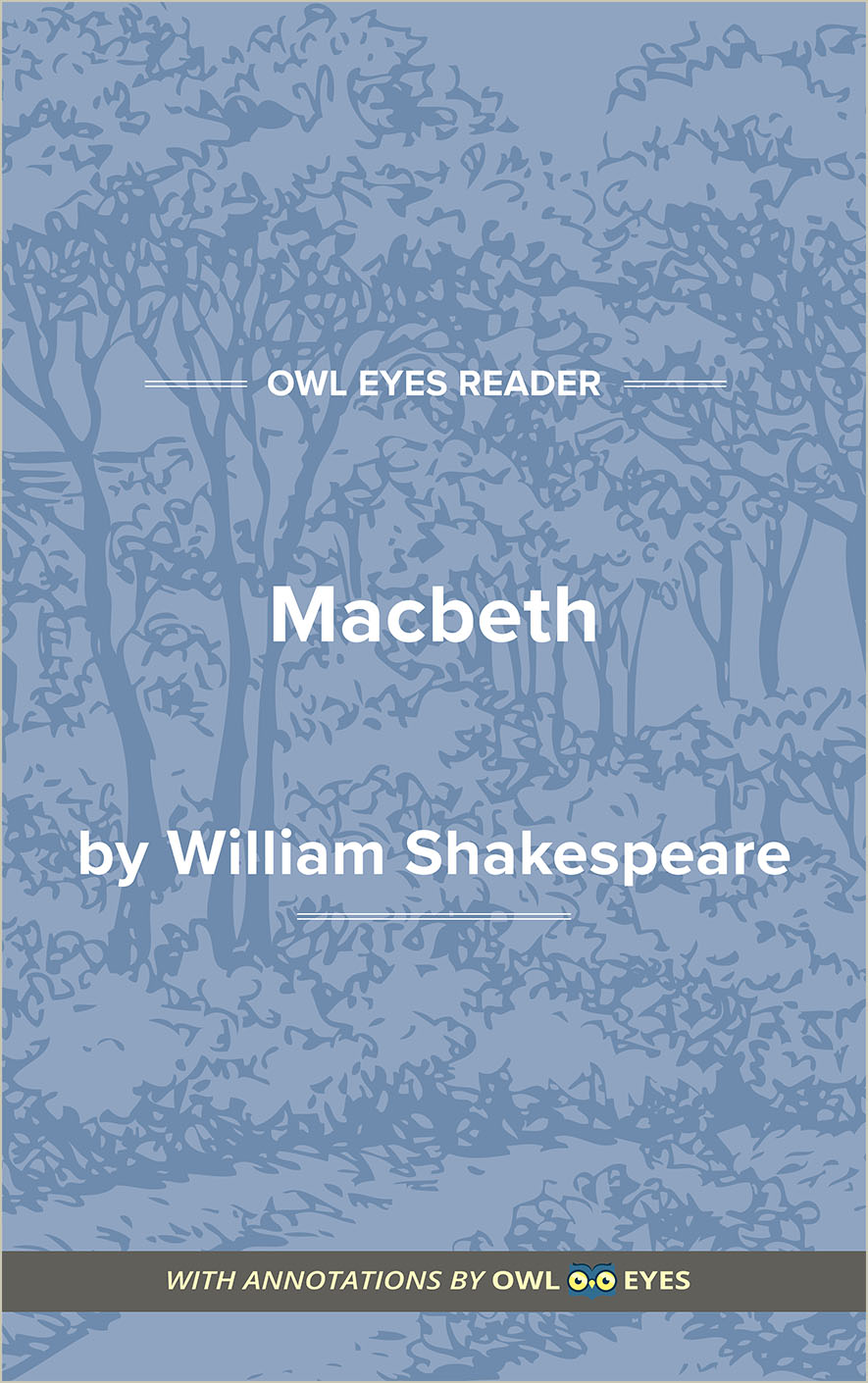Analysis Pages
Themes in Macbeth
The Danger of Ambition: Ambition for power is foregrounded as the key theme within Shakespeare’s play. More specifically, Shakespeare uses his narrative to demonstrate the danger of unchecked ambition. Macbeth’s ruthless ambition and pride have disastrous, bloody consequences.
Fate vs. Free Will: While some readers may see Macbeth’s fate as predetermined by the witches’ prophecy, other readers view his actions as an exercise of free will. Shakespeare provides evidence for both interpretations, which suggests the real answers lies somewhere between, in the murky middle.
The Natural and the Supernatural: Shakespeare uses supernatural elements, such as witches, ghosts, prophecy, and hallucinations throughout the play to conflate reality with the uncanny. The supernatural also represents an inversion of the natural order. Macbeth’s and Lady Macbeth’s unnatural ambition and murderous plot turn the world of the play upside down so that “fair is foul and foul is fair.” Everything in the play becomes untrustworthy, especially characters’ appearance and claims to sanity.
Gender-Role Subversion: Shakespeare directly subverts early modern social expectations that women were supposed to be nurturing wives and mothers. Main female character Lady Macbeth is more concerned with power and tyranny than family and the domestic household. Lady Macbeth mocks Macbeth’s masculinity in order to manipulate him into murdering King Duncan. In this way, Lady Macbeth appears to embody a sense of self-assurance and strength more than her soldier husband.
Themes Examples in Macbeth:
Act I - Scene I
🔒"Fair is foul, and foul is fair...." See in text (Act I - Scene I)
"Enter three Witches..." See in text (Act I - Scene I)
Act I - Scene II
🔒"O valiant cousin! Worthy gentleman!..." See in text (Act I - Scene II)
Act I - Scene III
🔒"My thought, whose murder yet is but fantastical,(150) Shakes so my single state of man that function Is smother'd in surmise, and nothing is But what is not...." See in text (Act I - Scene III)
"Or have we eaten on the insane root..." See in text (Act I - Scene III)
"And yet your beards forbid me to interpret That you are so...." See in text (Act I - Scene III)
Act I - Scene VI
🔒"This castle hath a pleasant seat..." See in text (Act I - Scene VI)
Act II - Scene I
🔒"I see thee still, And on thy blade and dudgeon gouts of blood, Which was not so before...." See in text (Act II - Scene I)
Act II - Scene IV
🔒"’Tis said they eat each other...." See in text (Act II - Scene IV)
"Hath trifled former knowings...." See in text (Act II - Scene IV)
Act III - Scene IV
🔒"they say blood will have blood...." See in text (Act III - Scene IV)
Act IV - Scene I
🔒"Fillet of a fenny snake, In the cauldron boil and bake; Eye of newt and toe of frog, Wool of bat and tongue of dog,(15) Adder's fork and blind-worm's sting, Lizard's leg and howlet's wing, For a charm of powerful trouble, Like a hell-broth boil and bubble...." See in text (Act IV - Scene I)
"Harpier..." See in text (Act IV - Scene I)
Act V - Scene I
🔒"’tis her command...." See in text (Act V - Scene I)
"perturbation..." See in text (Act V - Scene I)
"Out, damned spot!..." See in text (Act V - Scene I)
Act V - Scene V
🔒"Tomorrow, and tomorrow, and tomorrow Creeps in this petty pace from day to day To the last syllable of recorded time; And all our yesterdays have lighted fools The way to dusty death. Out, out, brief candle!(25) Life's but a walking shadow, a poor player That struts and frets his hour upon the stage And then is heard no more. It is a tale Told by an idiot, full of sound and fury, Signifying nothing..." See in text (Act V - Scene V)
"(30)..." See in text (Act V - Scene V)

